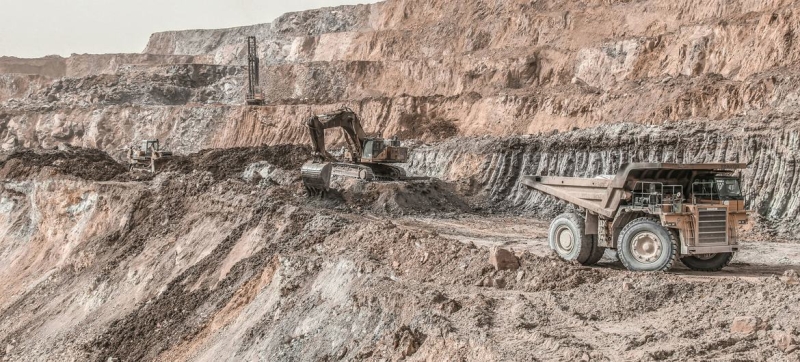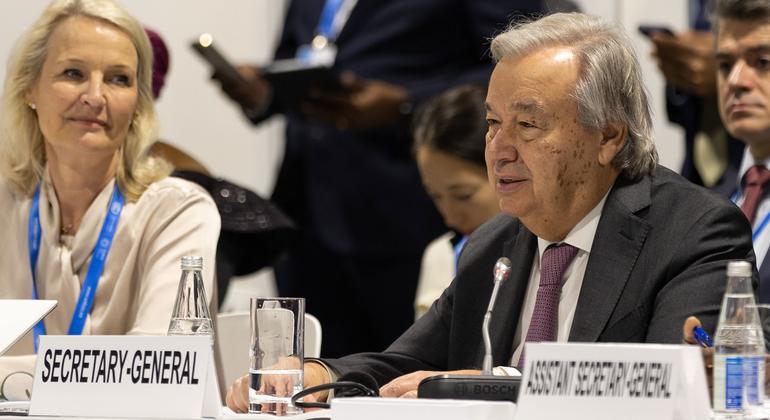
Copper mine in Iran. KS-29 | Critical minerals for the energy transition: avoiding the mistakes of the past Climate and environment
One of the leading topics of the third day of the UN Climate Conference, which is taking place in the capital of Azerbaijan, was the issue of production and fair distribution of minerals, which are needed, in particular, for the production of electric cars and solar panels. In his speech, the UN Secretary General called on the participants of the meeting to prevent a “surge in greed” among producers, which would exacerbate inequality.
Critical minerals for the energy transition, such as copper, lithium, nickel, cobalt and rare earth metals, are key components of many rapidly evolving clean energy technologies, from wind turbines and solar panels to electric vehicles and batteries. Demand for these minerals is set to nearly triple by 2030 as the world shifts to renewable energy to cut global carbon dioxide emissions to net zero by 2050.
We are here to answer a key challenge: turning the energy transition towards justice
Growing demand for critical minerals risks perpetuating resource dependence and exacerbating geopolitical tensions, environmental and social problems. These phenomena can be prevented, but to do so we must ensure that the countries and local communities that possess these resources receive the greatest benefits.

To study this issue, at the 28th UN Climate Change Conference, UN Secretary-General Antonio Guterres assembled a group of experts who developed their recommendations. “We are here to address the key challenge: turning the energy transition towards justice,” Guterres said in Baku on Wednesday. He asked the participants of the roundtable to express their views on the work of his Panel on Critical Minerals for the Energy Transition.
Read also:
Critical minerals: the energy transition must not worsen inequality
The UN chief said that the world is undergoing a renewable energy revolution. Thus, last year, for the first time, the volume of investments in renewable energy sources and their networks exceeded the volume of expenditure on fossil fuels.
“Mistakes of the Past”
Guterres said demand for fossil fuels, which are crucial to the energy transition, was expected to rise sharply as governments tripled global renewable energy capacity by 2030 as promised and phased out fossil fuels.
“For developing countries rich in these resources, this is a huge opportunity to build prosperity, achieve sustainable development and eradicate poverty. But too often, things don’t play out that way,” he warned. “Too often, we see the mistakes of the past repeated, with greed having devastating effects on the lives of the poor,” the Secretary-General added.
The pursuit of resources, he continued, had led to the exploitation of communities, the trampling of human rights and the destruction of the environment. “We see developing countries sinking to the very bottom of value chains while others get rich off their resources,” the UN chief said.
It was against this backdrop of sad reality and calls for action from developing countries that the Group was created, he said. Its latest report provides practical recommendations to build fairness and equity into the production and distribution of minerals.
“They aim to empower communities, strengthen accountability and ensure that clean energy contributes to fair and sustainable growth,” the Secretary-General explained.
Developing countries must have the leverage
The UN chief said developing countries would be the driving force behind this process, with indigenous peoples, local communities, youth, civil society, industry and trade unions involved in broad discussions alongside governments.
“We will also promote the recommended global traceability, transparency and accountability framework for the entire minerals value chain. This will help to stimulate responsible production while protecting human rights and the environment,” the UN chief said.
He called on all leaders – in government, industry and civil society – to join the UN and its partners in this task. “As demand for critical minerals for the clean energy transition grows, so too must our actions,” Antonio Guterres concluded.
